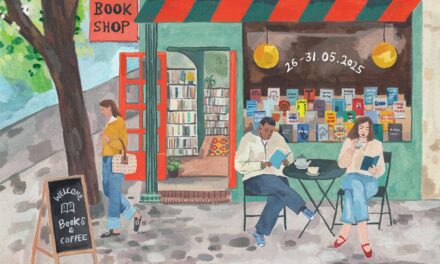Little bookstores constitute an integral part of our culture and our local communities. It’s the place where writers can connect with readers, where we discover new, unknown worlds, where children are captivated by the thrill of reading that can last a lifetime. They are the places that never stop inspiring us, uniting us and spreading the love for books.
Reading Greece* spoke to Ioanna Diamanti and Miltos Gitas,owners of “Mov Koukouvagia”, a little bookstore in Ioannina, Epirus, about the role of little bookstores and their influence on reading preferences, as well as the challenges they are faced with and the prospects ahead.
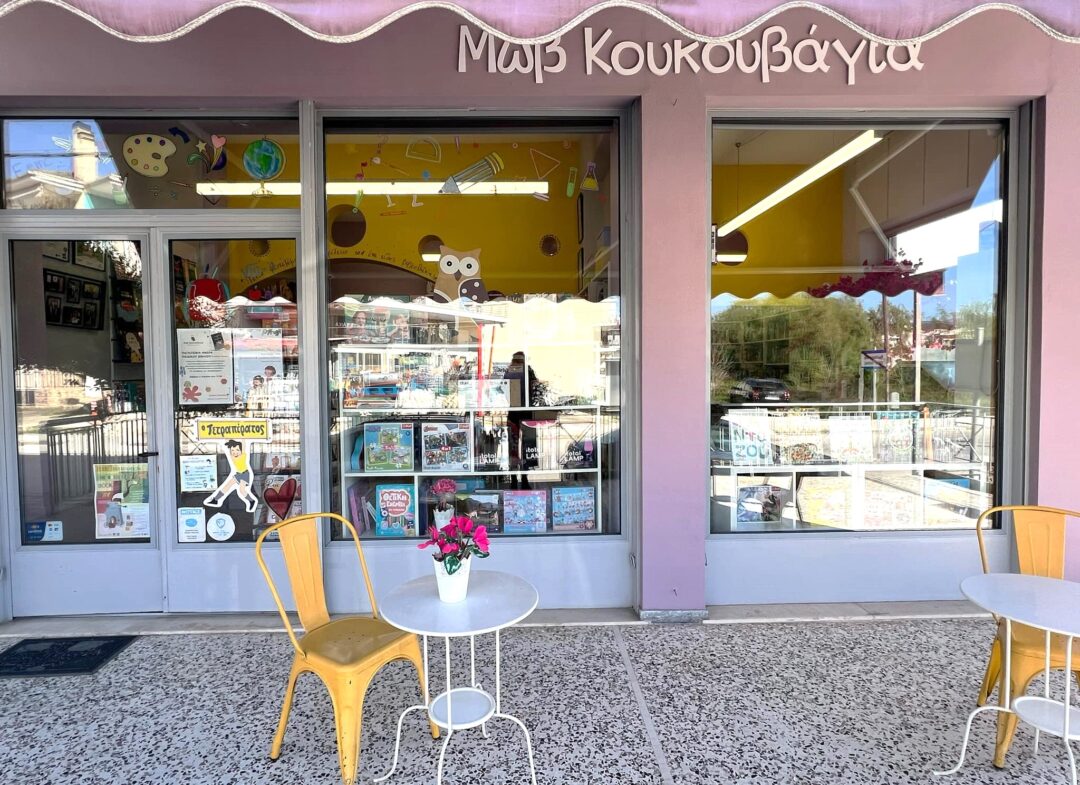
“Mov Koukouvagia” is a little bookstore in Ioannina, Epirus. What’s the story behind this venture of yours?
Our bookstore opened a few days before Christmas in 2019. Just a few months before the pandemic adventure. Having lived as a married couple for the past 7 years, we decided to make a dream, mainly Miltos’, come true. His involvement since childhood with literature (he has written 10 poetry collections), his experience as a journalist covering cultural issues for years and our common love for books all contributed to taking the leap. Our goals from day one were to be a family business, with the whole family involved, to support children’s books with actions and extroversion, and to give a “helping hand” to new literary voices. Thus “Mov Koukouvagia” built its nest and became our second home. With the purple colour as an ally, hiding all the wisdom of an owl and with no commercial knowledge, we started out strong.
What kind of books can readers find in your bookstores? What books do usually children choose?
Our bookstore cooperates with all major publishers and chooses to place best sellers, historical novels, crime novels and self-improvement books on its shelves. There is also a number of poetry titles and plays. At the same time our priority is to promote and help writers of all literary genres that come from Epirus. As for children’s books, where we invest as a bookstore, the reader will find a wide variety of timeless children’s books, new best seller titles and teenage books. There is also the possibility of buying school supplies for all school levels. Children love adventure, fantasy and empathy books. And, of course, the famous and timeless heroes of classical literature are always on our mind.
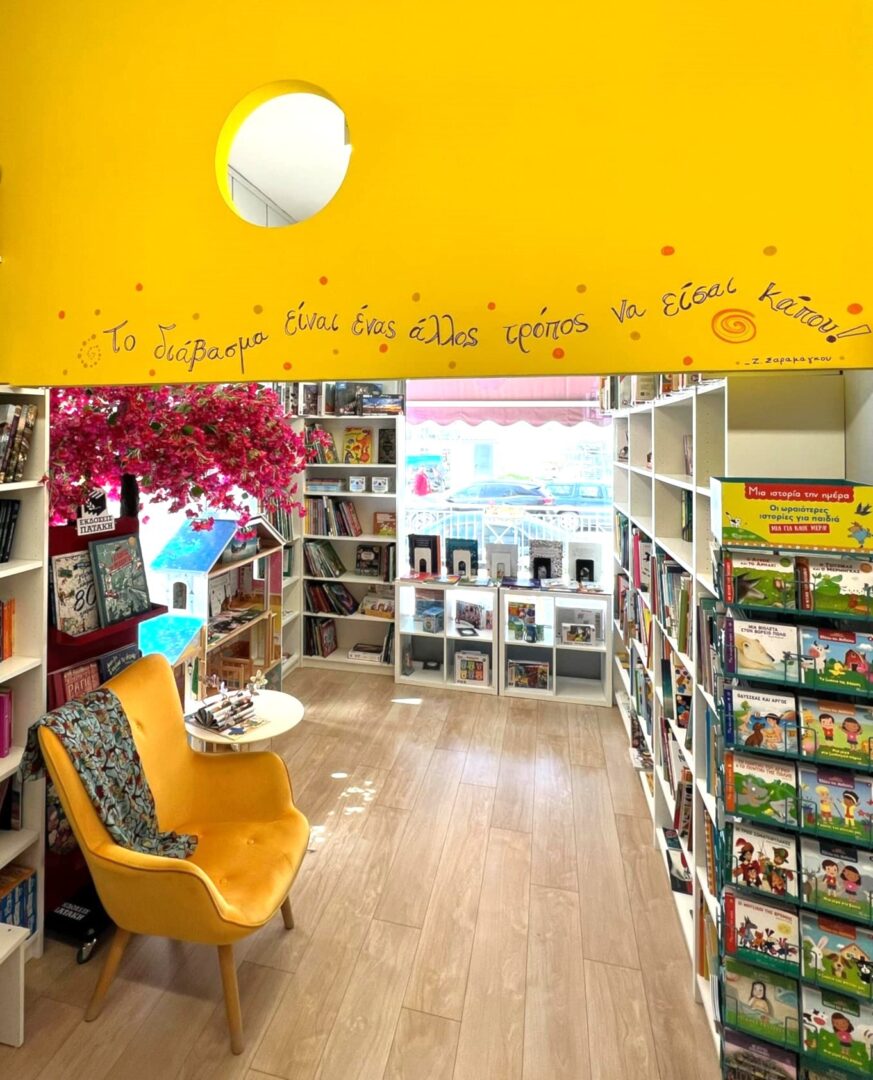
How important is the role of bookstores in fostering children’s love for reading?
Bookstores have always been cradles of culture and literacy. We believe that their role is important, especially today, as we are experiencing the revolution of screens and artificial intelligence. Magical worlds, heroes and stories with moral lessons emerge from the libraries of bookshops. All that needs to be done is for parents to bring their children to bookstores, smell the paper, browse through the illustrated books and in the end, we will eventually convince some kid to read. Equally important is that many bookstores, among them ours is included, organize reading events, interactive narrations and presentations of children’s books by the authors themselves.
Which are the main challenges little bookstores face nowadays? How do you respond to these challenges? What about the prospects ahead?
The main challenges which little bookshops are facing nowadays are both diverse and complex. Firstly, pressure from large chains and online platforms, which offer books at lower prices and with greater ease, is directly affecting our sales. Secondly, increased operating costs such as rent, bills and taxes create a financial environment that is quite stifling for small businesses. Finally, the shift to digital forms of reading, as well as the limited time and mood for reading, especially among younger people, also pose a significant challenge.
In response to these difficulties, we try to foster relationships of trust and personal contact with our readers-clients. We create a vibrant cultural environment: we organise book presentations, children’s workshops and seek out titles not easily found elsewhere. We carefully select our books, knowing our audience, and offer reading suggestions with care and love for books. As for future prospects, we believe that little bookstores can survive and thrive as long as they stay faithfull to their role as local cultural hubs. People are still looking for human contact and that is where we can make a difference.
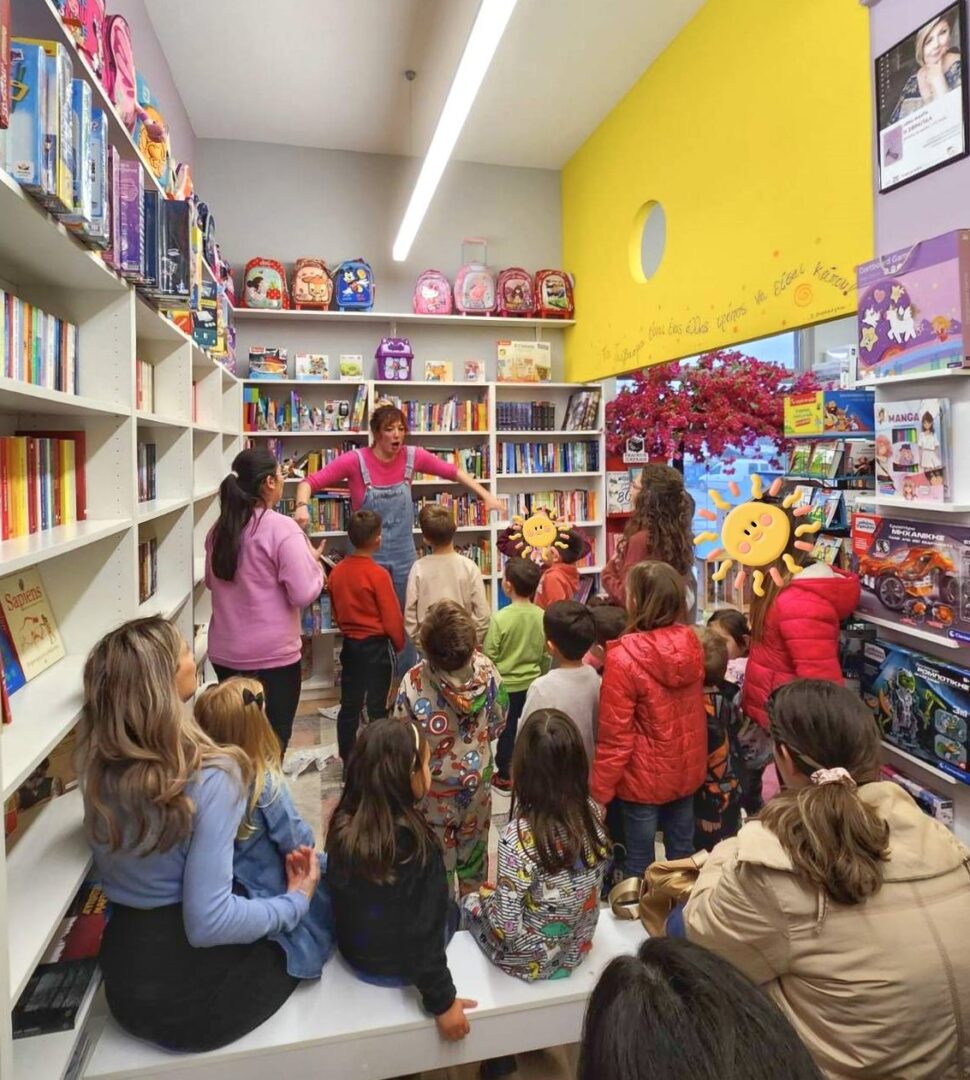
Would you say that the recent socio-economic crisis and the pandemic that followed has broken the ties connecting part of the readers with the choices and orientation of traditional publishers, creating an aesthetic and intellectual space that may certainly grow?
Ties with traditional publishing houses may not have been broken, but they have certainly been transformed; perhaps in some cases trust in them has been weakened. The socio-economic crisis and the pandemic acted as catalysts: many people came closer to books, but in new terms and with new aspirations. Reading became a more existential, more personal need, less imposed by ‘the prestige’ conferred by a full and up-to-date library. We often see books by smaller, independent publishing houses that may once have been ignored, but are now recognized for the boldness, freshness and deeper spirituality of their choices.
So, indeed, we can talk about an aesthetic and intellectual gap between “traditional” voices and new, previously marginal voices that are now becoming more and more visible. The bet for us, as a little bookstore, is to safeguard the bridge: to keep the reading field open for all kinds of literary voices, both old and new. Neither tradition should be ignored, nor should the new become a fetish. There are excellent examples on both sides. Our role is to listen and connect these two worlds.
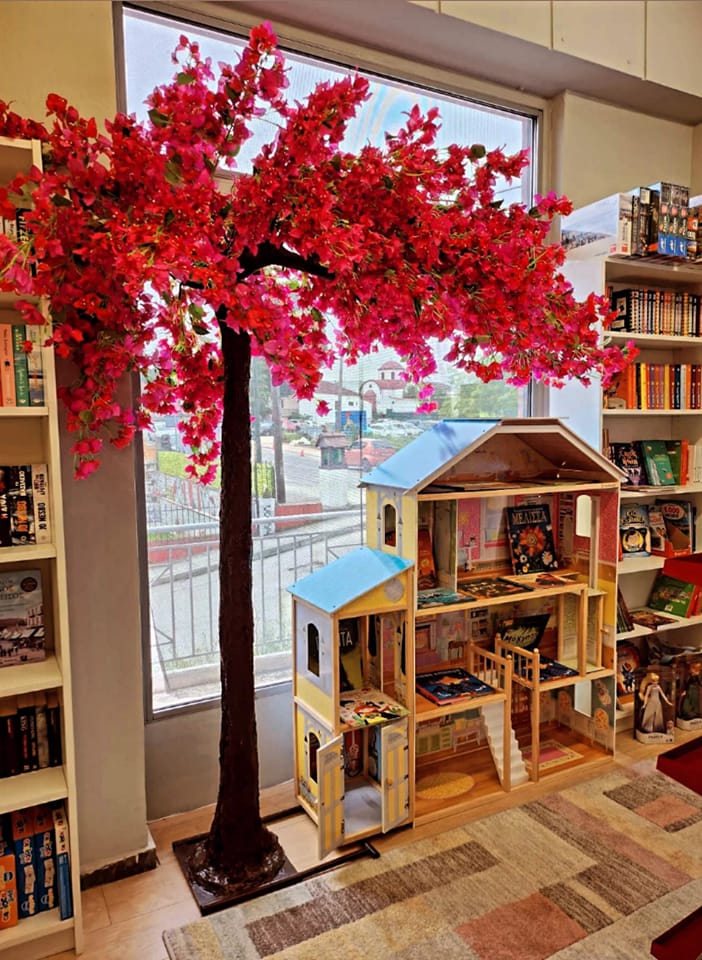
In the era of online communication, how have the social media influenced what people choose to read? How have reading preferences changed/evolved during the years?
Online communication and social media have radically changed the way people discover and choose the books they read. Platforms such as Instagram, TikTok and book clubs on Facebook have created a new potential: readers are influenced by suggestions they see in reels and stories, by viral suggestions or by favourite influencers. They often come to our bookstore looking for something they “read somewhere as a ‘must read’” or “saw being talked about everywhere”. This is where we, as booksellers, try to maintain a balance. We listen to current trends, but at the same time we make sure to recommend books that may not have as much digital exposure but are worth reading. There are real gems waiting for their readers in our library.
As for readers’ preferences over the years, we see a gradual shift towards more mainstream and easily accessible reads, books that talk about mental health, self-improvement, and experience. But at the same time, there is also an increasingly strong interest in literature with an identity, voices that have been marginalized, contemporary Greek prose and women’s writing. Reading may have changed form, but the need for stories, for recognition and emotion, through the pages of a book remains deeply human. And it is this need that continues to inspire us as well.
*Interview by Athina Rossoglou
TAGS: LITERATURE & BOOKS | READING GREECE


